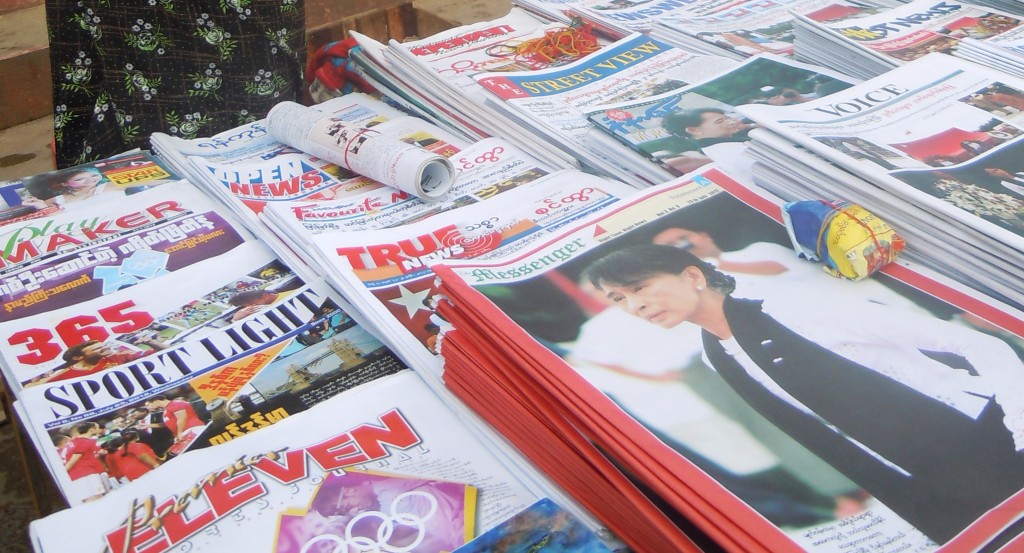New Mandala readers will want to know that the next Myanmar Update Conference will be held in Canberra on 15-16 March 2013. The Call for Papers follows below:
CALL FOR PAPERS
2013 Myanmar (Burma) Update Conference
Australian National University, Canberra
Friday & Saturday, 15 & 16 March 2013
DEBATING DEMOCRATISATION IN MYANMAR (BURMA)
The 2013 Myanmar (Burma) Update Conference will be held over two days, on Friday, 15 March and Saturday, 16 March 2013, at the Australian National University, Canberra, hosted by the Department of Political and Social Change, College of Asia and the Pacific, on the theme of “debating democratisation”. The Conference theme is partly a response to the insistence of government representatives in Myanmar (Burma) that they will not go back on commitments to democratise. Some observers of the political changes since the ANU convened its last regular Update Conference in May 2011 concur that the reform program is irreversible. They point to the many new policy initiatives from the centre, the apparent sincerity of elite actors about the need for consensus on democratic transition, and growing popular sentiment for social and political change as among evidence that the country is firmly on a democratising path.
Others are less confident. Resurgent civil war, communal conflict, and constraints on the burgeoning print news media cast doubt on some short-term prospects. The goal of national reconciliation is frustrated by impunity that the army enjoys. And although the National League for Democracy swept by-elections in 2012, the party continues to be dominated by a single personality and has not yet built a platform upon which to represent itself as a viable alternative to the military-established Union Solidarity and Development Party that currently holds an overwhelming number of seats in the national legislature. International capital is returning, but not at a pace or in a manner as to satisfy demands for immediate improvements in living standards and employment opportunities. The gap between rich and poor is not narrowing. Meanwhile, state institutions–including the bureaucracy, courts and police–continue to function much as they have done for over two decades. Steps to effect change from Naypyitaw have for most people not yet been realised in tangible results. Hopes are high, but so too is skepticism born of half a century of military dictatorship and the memories of earlier, lost moments of promise.
Is Myanmar (Burma) democratising, or is it moving towards a new form of authoritarianism, perhaps one more consonant with other contemporary authoritarian regimes in Asia? What lessons for Myanmar (Burma) can we draw from democratisation theory, and from comparisons with other countries in the region, or further afield? Coming at a critical time, and one of growing interest in the country among researchers and policymakers, the 2013 Myanmar (Burma) Update Conference will assemble leading international scholars of democratisation, political transition and comparative politics to debate these questions with leading and emerging specialists on politics and society in Myanmar (Burma).
Paper proposals
The Myanmar (Burma) Update Conference conveners invite paper proposals from interested academics, analysts, researchers, and professionals for presentation in one of six sessions at the Conference: (1) Democratisation in the big picture, (2) Parliament, parties and the public, (3) Prospects and problems for the economy, (4) Ethnic politics in transition, (5) Issues for neighbouring countries and comparative lessons; and, (6) Institutional challenges and constraints. The organisers are particularly interested to receive proposals on the evolving political role of the military; the dynamics of protest and public activism; land and labour-related disputes; ceasefires, ongoing civil war and communal conflict; the media and prospects for free expression; and, the role of civil society, as well as that of the international community.
To submit a proposal, please send a paper title, nominated session and abstract of no more than 600 words together with a brief CV by no later than Friday, 28 September 2012, to mbu@anu.edu.au. Please be aware that only proposals of the highest quality whose contents are consistent with the conference themes will be considered. Those persons whose proposals are accepted will be notified within two weeks after the deadline. The Conference organisers may also request persons whose papers are accepted to revise their proposals in order to address issues not covered by other presenters.
Those persons whose submissions are accepted will be required to submit a first full draft of the paper of between 5000 and 8000 words by 18 January 2013. A revised draft for publication will be required within two months of completion of the Conference.
Please direct any inquiries to:
Nick Cheesman, nicholas.cheesman@anu.edu.au, or
Trevor Wilson, trevor.wilson@anu.edu.au.
Conference conveners
Dr Nick Cheesman, Lecturer, Department of Political and Social Change, ANU
Dr Nicholas Farrelly, Research Fellow, School of International, Political and Strategic Studies
Mr Trevor Wilson, Visiting Fellow, Department of Political and Social Change
Professor Ed Aspinall, Head, Department of Political and Social Change
For information about past Burma/Myanmar Update Conferences and conference publications, visit http://ips.cap.anu.edu.au/psc/Myanmar/index.php
 Facebook
Facebook  Twitter
Twitter  Soundcloud
Soundcloud  Youtube
Youtube  Rss
Rss 